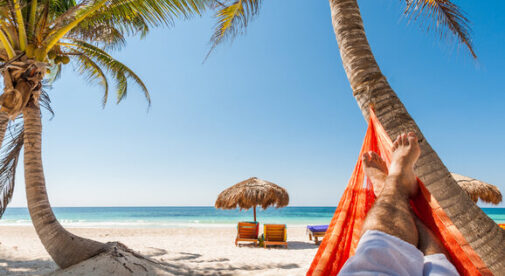Imagine somebody asks you, “What’s it like to live in the United States of America?”
Your answer will be very different if you live in New York City… rural Montana… suburban Maryland…
Because the U.S. isn’t really one place.
In the same way, those of us living in Mexico recognize there are many Mexicos. There’s not one answer when asked to describe our life in Mexico.
It’s a hearty buffet of opportunities and lifestyles, experienced differently by everyone.
One thing most of us will agree on, however, is that there’s way more to Mexico than margaritas and white sand… although both of those are plentiful.
How Mexico Compares to the U.S.
The U.S. and Mexico each have varying climates, but Mexico is generally much warmer. Each has barren deserts, mountains, rolling plains, gorgeous beaches, gulfs, bays, lakes, rivers, and stunning national parks. Mexico probably deserves bonus points for a rich, vibrant culture, ancient archeological ruins, and world class food.
Geographic regions help to divide both countries into natural food zones. Coastal areas have abundant, delicious, seafood, prepared differently depending on the part of the country you´re in.
The middle of the country provides livestock, dairy, farmed products and a variety of natural resources. Each region also has a unique culture as people normally cluster together based on history and shared experiences.
The English language sounds different as one travels from state to state in the U.S. Someone from Georgia will sound much different from a resident of Maine. The Spanish spoken throughout Mexico also has regional variations and can sound quite different, one region from another.
In addition to Spanish, Mayan is commonly spoken in the Yucatan Peninsula, where my wife and I live. Some English can be heard in tourist areas like Cancun and Cabo.
With so many different Mexicos, I can’t give you a definitive answer for what it’s like to live in each of them… But I can tell you about life in our Mexico—the one my wife and I call home.
How We Found Our Mexico
Beginning in Ecuador, my wife, Diane, and I started our expat life in 2010. We have maintained our permanent expat status since then, returning to the U.S. only for brief visits.
After two years in Ecuador, we moved to the bustling, tourist city of Cancun, Mexico. We spent considerable time traveling up and down the Caribbean Coast (known as the Riviera Maya) as well as visiting much of the rest of the country. Although we lived directly on the Caribbean, a location many would love, we discovered Cancun wasn’t our bullseye.
We left Cancun after four years and decided to build our permanent retirement home in a tiny Maya village (population about 450) in the Mexican state of Yucatan.
No one speaks English, all speak Mayan and most also speak Spanish. This tiny, peaceful village, with its charm and warm people, is a wonderful, unique place for us to live.
Our home is a modern, attractive air-conditioned structure, custom built by local craftsmen, from our plans. One thousand square feet, concrete block and stone, built on a hand-dug foundation down to bedrock. The craftsmanship is excellent! Total cost was about $38,000 equivalent.
We built our home out-of-pocket over the course of about six months. It was livable after three months and we moved in, while construction continued around us.
What Life is Like in Our Mexico
We have a small team of helpers caring for us and our home and we recognize our good fortune. The essentials of our simple life cost about $1,200 per month. Our home has no payments nor does our nice Jeep.
We go to restaurants as often as we wish, our laundry, maintenance and all cleaning is done for us, our pets and home are well-tended when we travel. And believe me, we are far from wealthy!
We are about two hours from Cancun and the Caribbean Sea, an easy day trip if we wish. Two hours in the opposite direction will take us to the beautiful, historic city of Merida. We’re only 30 minutes from historically significant Valladolid, with great food, amazing Spanish architecture and modern supermarkets.
There’s also a large, open market in Valladolid brimming with fresh fruits and vegetables, poultry, and meats, as well as loads of handcrafted items and many options for delicious street food from local vendors.
The Mexican government regulates gas prices, and they are always reasonable.
Our overall cost of living is about 35 to 40 percent less than a small midwestern city in the US.
Expect significantly higher costs in coastal/resort areas and areas with a heavy population of expats. We could certainly spend more.
There are several hospitals in our area as well as innumerable clinics and medical offices, laboratories, and pharmacies. Most medications are available without prescriptions for pennies-on-the-dollar compared to the United States.
Having lived outside the U.S. for some 13 years now, I try to be careful and brutally honest when I’m asked what it’s like to be retired in Mexico.
I must remember the early challenges of learning a new language (high school Spanish grade: D), melding into a new culture, and plowing through always-cumbersome bureaucratic processes.
Nothing is perfect, but the inconveniences are easily offset by the incredible advantages we realize.
Our life in a tiny village in Mexico is unique, rewarding and economical. It took planning, flexibility, and perseverance. It’s certainly not for everyone, but we love it!
[mexico_signup]
Related Articles
A Foodie Paradise For Under $1,000 A Month
Top 10 Reasons to Move to Mexico
The Best Places to Live in Mexico as a U.S. Expat
[post_takeover]
[lytics_best_articles_collection]

